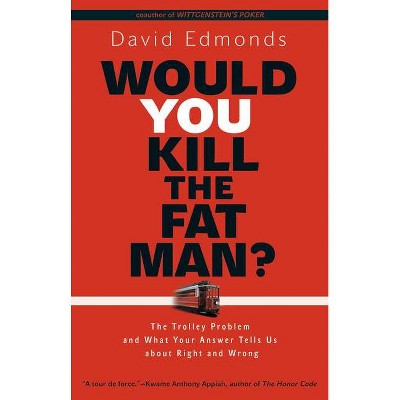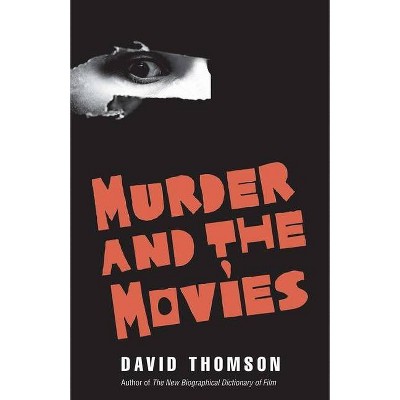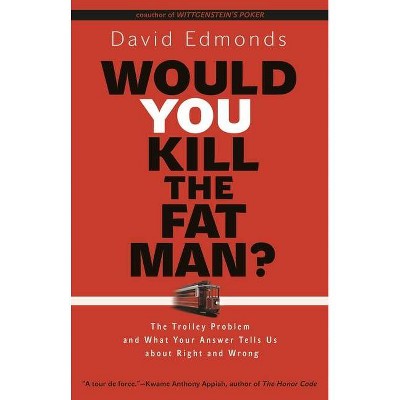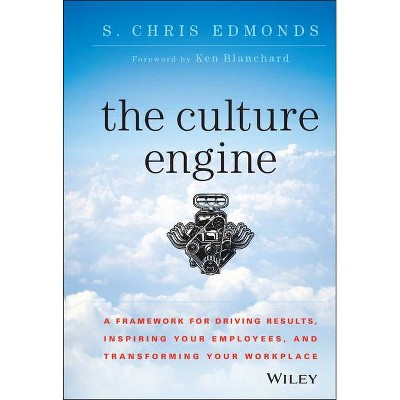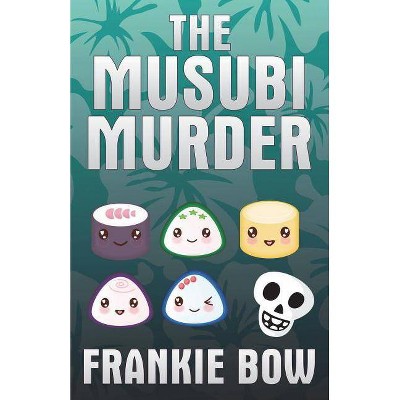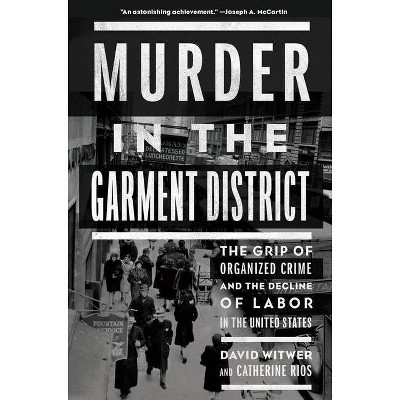The Murder of Professor Schlick - by David Edmonds (Hardcover)
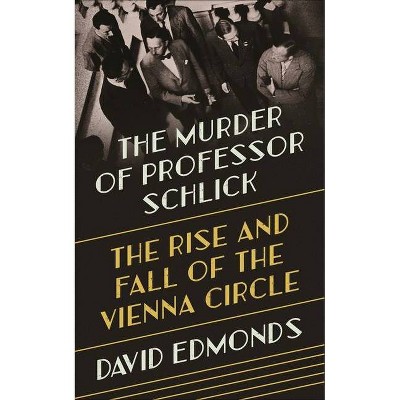
Similar Products
Products of same category from the store
AllProduct info
<p/><br></br><p><b> About the Book </b></p></br></br>"It is the morning of June 22, 1936. The professor of inductive logic at the University of Vienna, Moritz Schlick, is making his accustomed way up the wide stone stairs that lead into the University. It is 9:15 and a former student of Schlick's, Johann Nelbèock, is loitering on the staircase, waiting for him. As Schlick approaches, Johann Nelbèock lifts a pistol and fires four shots. A witness hears him shout, "Now you damned bastard, there you have it". Schlick dies immediately. His death spells the ending of the remarkable philosophical grouping of which he had been founder and moving force, the Vienna Circle. This extraordinary group of mathematicians, logicians, physicists, philosophers and social scientists has been holding regular meetings under Schlick's leadership since 1922. But in 1936 the political landscape in Austria is darkening, and exile for members of the Circle already beckons. It is not to be a happy experience for many of them-uprooted from Viennese culture, separated from old friends and intellectual soul-mates. The governing principle for which the Circle is best known, logical positivism, famously maintained that only two types of propositions were meaningful: those that could be verified through experience (e.g. water boils at 100 degrees centigrade) and those that were analytically true - true by virtue of the terms they employed (e.g. all bachelors are unmarried men). All other propositions were, literally, meaningless. These included propositions about God and certain propositions about aesthetics and morality (such as 'murder is wrong'). A list of names linked to the Circle reads like a Who's Who of 20th century philosophy, mathematics and science. In addition to Schlick, it includes Rudolf Carnap, Otto Neurath, Phillip Frank, Hans Hahn, Olga Hahn-Neurath, Karl Menger, Friedrich Waismann, Herbert Feigl, Kurt Gèodel, Carl Hempel, W.V.O. Quine, A J Ayer, and also, indirectly but influentially, Ludwig Wittgenstein and Karl Popper. For a period, Logical Positivism with its attempt to analyze 'truth', 'knowledge', and the limits of meaning, was the most fashionable movement in the world. Though its central tenets were ultimately abandoned, the Circle - especially through the exile of its key figures in the UK and US - had an enormous influence on 20th century philosophy and beyond. This book is about the origins, the short, influential life and the untimely death of the Vienna Circle, and the afterlife of its adherents"--<p/><br></br><p><b> Book Synopsis </b></p></br></br><p><b>From the author of <i>Wittgenstein's Poker</i> and <i>Would You Kill the Fat Man?</i>, the story of an extraordinary group of philosophers during a dark chapter in Europe's history</b> <p/>On June 22, 1936, the philosopher Moritz Schlick was on his way to deliver a lecture at the University of Vienna when Johann Nelböck, a deranged former student of Schlick's, shot him dead on the university steps. Some Austrian newspapers defended the madman, while Nelböck himself argued in court that his onetime teacher had promoted a treacherous Jewish philosophy. David Edmonds traces the rise and fall of the Vienna Circle-an influential group of brilliant thinkers led by Schlick-and of a philosophical movement that sought to do away with metaphysics and pseudoscience in a city darkened by fascism, anti-Semitism, and unreason. <p/>The Vienna Circle's members included Otto Neurath, Rudolf Carnap, and the eccentric logician Kurt Gödel. On its fringes were two other philosophical titans of the twentieth century, Ludwig Wittgenstein and Karl Popper. The Circle championed the philosophy of logical empiricism, which held that only two types of propositions have cognitive meaning, those that can be verified through experience and those that are analytically true. For a time, it was the most fashionable movement in philosophy. Yet by the outbreak of World War II, Schlick's group had disbanded and almost all its members had fled. Edmonds reveals why the Austro-fascists and the Nazis saw their philosophy as such a threat. <p/><i>The Murder of Professor Schlick</i> paints an unforgettable portrait of the Vienna Circle and its members while weaving an enthralling narrative set against the backdrop of economic catastrophe and rising extremism in Hitler's Europe.</p><p/><br></br><p><b> Review Quotes </b></p></br></br><br>A Times Literary Supplement Book of the Year 2021<br><br>An always-readable obituary for the philosophers who sought a common basis for western thought while communism and Nazism were on the bloody rise.<b>---Frederic Raphael, <i>Times Literary Supplement </i></b><br><br>[A] lively new book. . . .Edmonds draws unexpected connections within the sprawling web of thinkers and artists in interwar Vienna. . . bringing to life the artistic and political flavour of those coffee-house debates<b>---Jonathan Egid, <i>Times Literary Supplement</i></b><br><br>An accessible introduction to the group of philosophers and scientists who formed the influential Vienna Circle in the 20th century. . . . Edmonds tells its story thoughtfully in this fascinating mix of philosophy, biography and cultural history.<b>---David Herman, <i>Jewish Renaissance</i></b><br><br>Edmonds has written a compelling, captivating, and easily approachable book on the history of the Vienna Circle. He is witty, engaging, knows where to put emphasis, and how to draw lively pictures of those philosophers that are still too often conceived as technically minded abstract logicians. . . .Edmonds' book will make you understand why the Vienna Circle was so important back in the 1920s, and still important in the 2020s.<b>---Adam Tamas Tuboly, <i>Review of History of Philosophy of Science Books</i></b><br><br>A stimulating, scintillating new book on the Vienna Circle.<b>---Daniel Johnson, <i>The Critic</i></b><br><br>A clear accessible introduction to the complexities of logical positivism . . . [Edmonds] brilliantly illuminates why and how the philosophy burned so brightly.<b>---Clare Clark, <i>Standpoint</i></b><br><br>A readable popular history of the Circle that deftly integrates the ideas and lives of its members with the story of the Viennese milieu in which it emerged and its destruction. . . . [Edmonds'] historical narrative is clear, reliable and thoroughly readable - gripping, even, in places.<b>---Tom Stern, <i>Literary Review</i></b><br><br>[An] exemplary [piece] of intellectual history, doing meticulous justice to the ideas and engrossing about the personalities involved.<b>---Alan Ryan, <i>New Statesman</i></b><br><br>[A] compelling biography.<b>---Oliver Moody, <i>The Times</i></b><br><br>[Edmonds manages to] combine the biographical and historical with the philosophical, without getting too technical. . . . It's quite a poignant book.<b>---Nigel Warburton, <i>FiveBooks</i></b><br><br>[L]ively and accessible. . . . [Edmond's] research has also uncovered important new biographical information, including about [the Vienna Circle's] lesser-known female members.<b>---Adam Kirsch, <i>New Yorker</i></b><br><br>A cracking read.<b>---Diane Coyle, <i>Enlightened Economist</i></b><br><br>Absorbing. . . . so fascinating and relevant now.<b>---Thomas Filbin, <i>The Arts Fuse</i></b><br><br>As pacy as a thriller.<b>---Joe Humphreys, <i>Irish Times</i></b><br><br>I very much enjoyed this book, and found its direct style refreshing, and I hope it will serve as a model for others. [Edmonds] actually tells you what you want to know!<b>---Tyler Cowen, <i>Marginal Revolution</i></b><br><br>One of New Statesman's Books of the Year 2020<br><br>[An] engrossing and eminently readable history of the circle.<b>---David Conway, <i>Jewish Chronicle</i></b><br><p/><br></br><p><b> About the Author </b></p></br></br><b>David Edmonds</b> is the coauthor, with John Eidinow, of the bestselling <i>Wittgenstein's Poker</i> as well as <i>Rousseau's Dog</i> and <i>Bobby Fischer Goes to War</i>, and the author of <i>Would You Kill the Fat Man?</i> (Princeton). Cofounder, with Nigel Warburton, of the popular <i>Philosophy Bites</i> podcast series, he is a distinguished research fellow at the Oxford Uehiro Centre for Practical Ethics. Twitter @DavidEdmonds100
Price History
Cheapest price in the interval: 22.99 on November 8, 2021
Most expensive price in the interval: 22.99 on December 20, 2021
Price Archive shows prices from various stores, lets you see history and find the cheapest. There is no actual sale on the website. For all support, inquiry and suggestion messages communication@pricearchive.us
